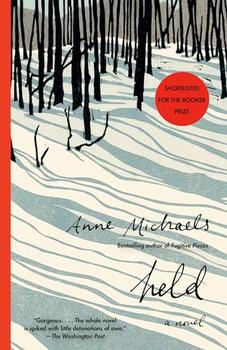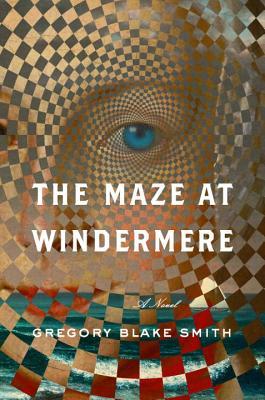Summary | Excerpt | Reading Guide | Reviews | Beyond the book | Read-Alikes | Genres & Themes | Author Bio

A Novel
by Anne Michaels"We know life is finite. Why should we believe death lasts forever?" These words begin Anne Michaels's third novel, Held, a century-spanning meditation on grief, love and human connection. The novel opens in 1917 on the battlefield off the shores of River Escaut in Cambria, France—British soldier John has been wounded in a blast and lies dying. John's inner monologue, a series of observations about his surroundings, gives way to tender memories of his lover, Helena, as he begins to lose consciousness. Love, war and the tension between the two quickly emerge as prominent themes.
The novel then skips ahead to 1920. We're in North Yorkshire, England, and John has miraculously survived, though he's marked by the war in more ways than he realizes. John marries Helena and runs a photography studio, hiring an assistant who can help with the daily upkeep, since John has lost the use of one of his legs in the blast. One day he takes a young man's portrait as usual, but in the background of the photograph, the figure of an older woman materializes—she turns out to be the young man's deceased mother. As John takes more portraits, other shadowy figures begin to come into view, a phenomenon that he is unable to explain or control.
These ghosts continue to permeate John's photographs as well as Anne Michaels's deftly-crafted novel, which weaves together the narratives of multiple families across twentieth and twenty-first century Europe. John's narrative segues to Helena's, and then their daughter's, before introducing more tangentially connected characters, including several real-life figures such as Marie Curie and Hertha Ayrton (see Beyond the Book). The novel loops backward and forward in time, giving the impression of the past and future unfolding simultaneously, and finally culminates in a short scene on the Gulf of Finland in 2025.
This chorus of narratives at times confounds (connections between characters are not always evident at first glance) but ultimately rewards the reader as it dovetails into a poignant, singular work that ruminates on the ways in which we touch one another's lives. A small detail in 1980 will echo back to 1920; two characters will brush against one another by chance and alter the course of their family history. The motif of John's ghostly photographs is a literal manifestation of one of the novel's most central themes: that the dead never leave us—that we coexist with the echoes and shadows of our ancestors in our daily lives, even if we can't feel them.
Anne Michaels, once Toronto's poet laureate, employs a nontraditional narrative structure and tells this story in accomplished prose that engages the reader effortlessly; it's difficult not to inhale this strange, lovely novel in a single sitting. At a slim 200 pages, Held appears to be an ambitious project with its numerous locations and large cast of characters, but Michaels rises to the challenge she has set herself—everything is deliberate and nothing is underdeveloped. Though each reader is bound to take away something different from this thematically rich work, the compassion and tenderness it has for its characters and their complicated relationships feels like its most profound gift.
![]() This review was originally published in The BookBrowse Review in March 2024, and has been updated for the
March 2025 edition.
Click here to go to this issue.
This review was originally published in The BookBrowse Review in March 2024, and has been updated for the
March 2025 edition.
Click here to go to this issue.

If you liked Held, try these:

by Katherine Arden
Published 2025
During the Great War, a combat nurse searches for her brother, believed dead in the trenches despite eerie signs that suggest otherwise, in this hauntingly beautiful historical novel with a speculative twist, from the New York Times bestselling author of The Bear and the Nightingale.

by Gregory Blake Smith
Published 2019
A richly layered novel of love, ambition, and duplicity, set against the storied seascape of Newport, Rhode Island.
Your guide toexceptional books
BookBrowse seeks out and recommends the best in contemporary fiction and nonfiction—books that not only engage and entertain but also deepen our understanding of ourselves and the world around us.